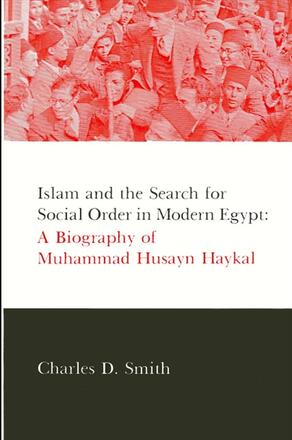
Islam and the Search for Social Order in Modern Egypt
A Biography of Muhammad Husayn Haykal
Alternative formats available from:
Charles D. Smith is Professor of Islamic and Middle East History at San Diego State University
Reviews
"This is an outstanding piece of literary research and criticism. It is based on voluminous reading of difficult source material in Arabic, and on a rich and wise understanding of the cultural history of modern Egypt and of modern religious and civilizational issues. It is written in an erudite yet simple and relaxed style. And it tells us in great detail about the intellectual evolution of an outstanding cultural figure of the Arab and Muslim worlds. There are few others of these. " — Malcolm H. Kerr, UCLA
"Islam and the Search for Social Order in Modern Egypt fills an important gap in Egyptian intellectual and political history. Muhammad Husayn Haykal was one of the leading intellectuals of his generation and an important politician as well. By showing the difficulties and eventual defeat that Haykal faced both as a thinker and as a politician, the book furthers our understanding of why the old regime failed in Egypt in 1952. " — Donald M. Reid, Georgia State University
"This book succeeds in analyzing intellectual history of the pre-1952 period in Egypt 'from within,' so to speak. No other study approaches this period from Smith's perspective, treating the life of Haykal as a metaphor for a group of intellectuals and their attempt to fashion an ideology of development for modern Egypt. This study is more than a biography of Haykal, having the broader perspective of the problematic of 'Islam' in social development. The current evolution of society in Egypt continues to feature the exploration of many of the same issues that exercised Haykal. The care with which Smith has researched these issues imparts to the study a distinct aura of authenticity. But beyond that, he has given us a framework for understanding much of the present discourse in Egypt over the role of traditional culture and its interpretations of social reality for contemporary Egyptian politics and society. In short, far from being a strictly narrow-based study of one man's intellectual odyssey, the work has relevance for the larger issues of development for this critically important Arab state. " — Shahrough Akhavi, University of South Carolina